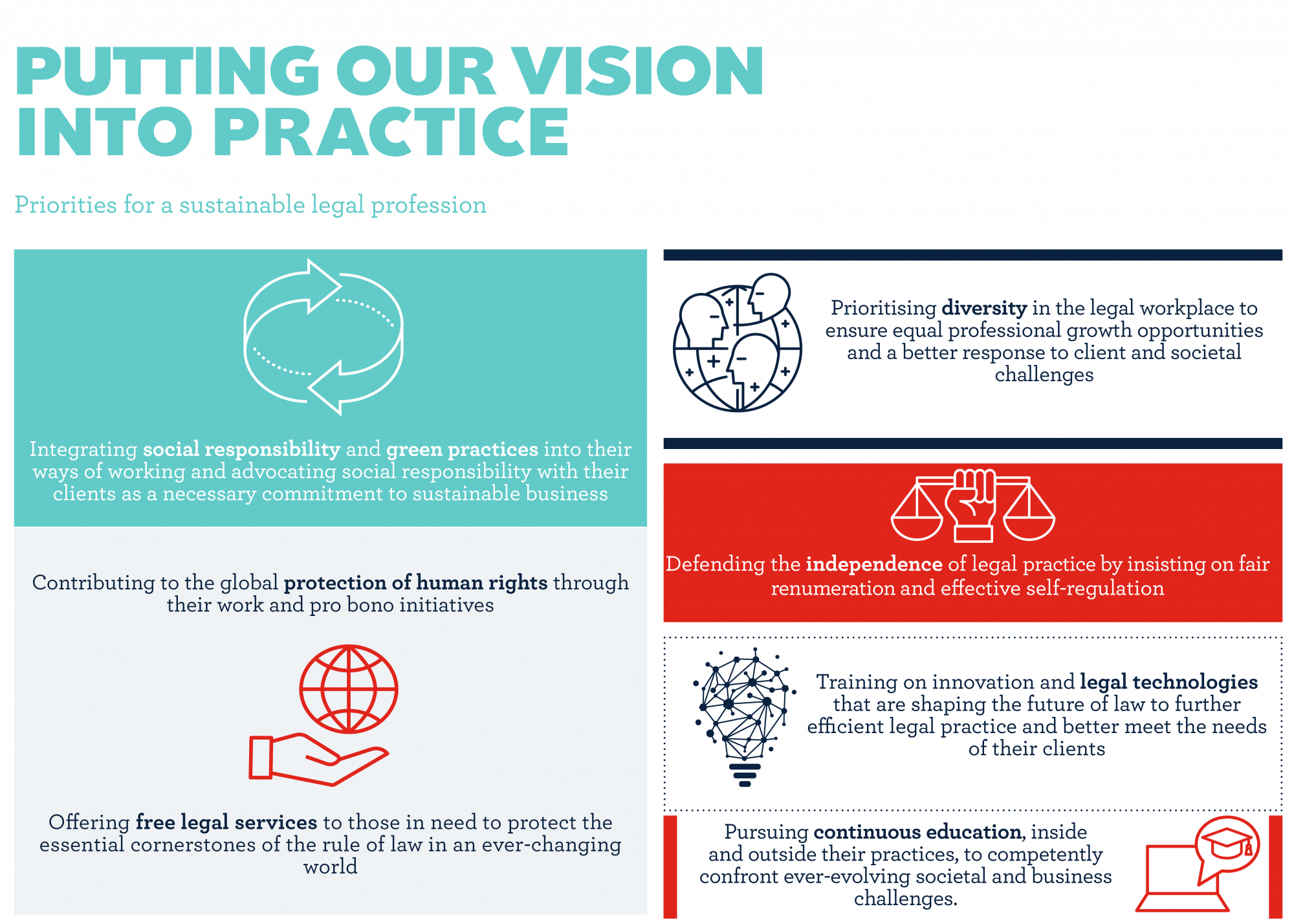Subscribe to AIJA updates
The latest events, news, articles, and resources, sent straight to your inbox
The legal profession is at the threshold of fundamental change. An era of innovation is disrupting and overturning old ways of organising and working, presenting new challenges and opportunities. The future of our planet is in danger, demanding immediate action. Social inequality and widespread poverty press for new solutions to build a better world. The COVID-19 pandemic that has shaken our world this year has put this inequality into stark relief, hitting the world’s vulnerable the hardest. The crisis has also accelerated digitalisation and the transition to a more sustainable way of living. Lawyers are called upon to not only adapt to a changing economy and society, but to lead positive change on a grand scale.
Sustainability has many different definitions, but its essence was articulated by the Brundtland Commission, tasked by the UN in 1987 to formulate a global agenda for change:

This driving principle was embraced by all nations when the 17 Sustainable Development Goals (SDGs) were adopted in 2015, forming a blueprint to end poverty, protect the planet and ensure peace and prosperity for all by 2030. To contribute to achieving these goals, we are in need of a sustainability-minded legal profession, aware of the most urgent needs for our digitalised and globalised world. Lawyers must support change, and also be the change. Lawyers must develop new skills, as well as be more conscious of their own ecological impact and that of their clients. Lawyers must use their knowledge for the greater good, providing solutions to environmental and social challenges. Lawyers must stand up for human rights, help break down the barriers to justice and resist threats to the independence of the profession. Meeting these challenges requires an inclusive approach and a broad diversity of perspectives. That is why AIJA has chosen diversity as the theme of the 2019-20 term.
The time to act is now, otherwise we will miss the challenges of our generation and irremediably jeopardise the wellbeing of future generations. The legal profession, with its privileged access to all facets of society, is uniquely placed to further global sustainability goals. Lawyers cannot do it alone: we must work hand-in-hand with legal associations around the globe to build a more sustainable profession. A profession that has both the singular ability and a solemn duty to contribute to a more sustainable future.
Ensuring the sustainability of the legal profession must be founded on the following values:
While defending their clients’ private interests, lawyers also have a duty to use their knowledge and skills for the greater good. This means providing solutions to social, economic and environmental challenges for their clients and volunteering some of their time to sustainable initiatives.
Lawyers may be the main guardians of the judicial system and of the just advancement of modern legal societies. These provide the foundation for a thriving economy and society. It is the lawyer’s responsibility and endeavour to provide access to justice and to help citizens overcome any barriers to access..
The legal profession is committed to ongoing study and professional development. Lawyers should complement their legal knowledge with a deep familiarity of the challenges faced by the various sectors they advise, and continue to pursue their education throughout their careers.
Lawyers should be ready to confront the challenges of a globalised and interconnected world, and be committed to understanding, respecting and ensuring respect for different cultures and legal systems. Lawyers must welcome and guarantee a wide array of perspectives by nurturing the exchange of legal competences.
Lawyers must uphold a high standard to resist corruption and external interference. Lawyers must be free to accept or dismiss a case, to sustain a client’s best interest and to avoid any conflict of interest. Confidentiality and legal privilege must be protected without limitation..

The latest events, news, articles, and resources, sent straight to your inbox